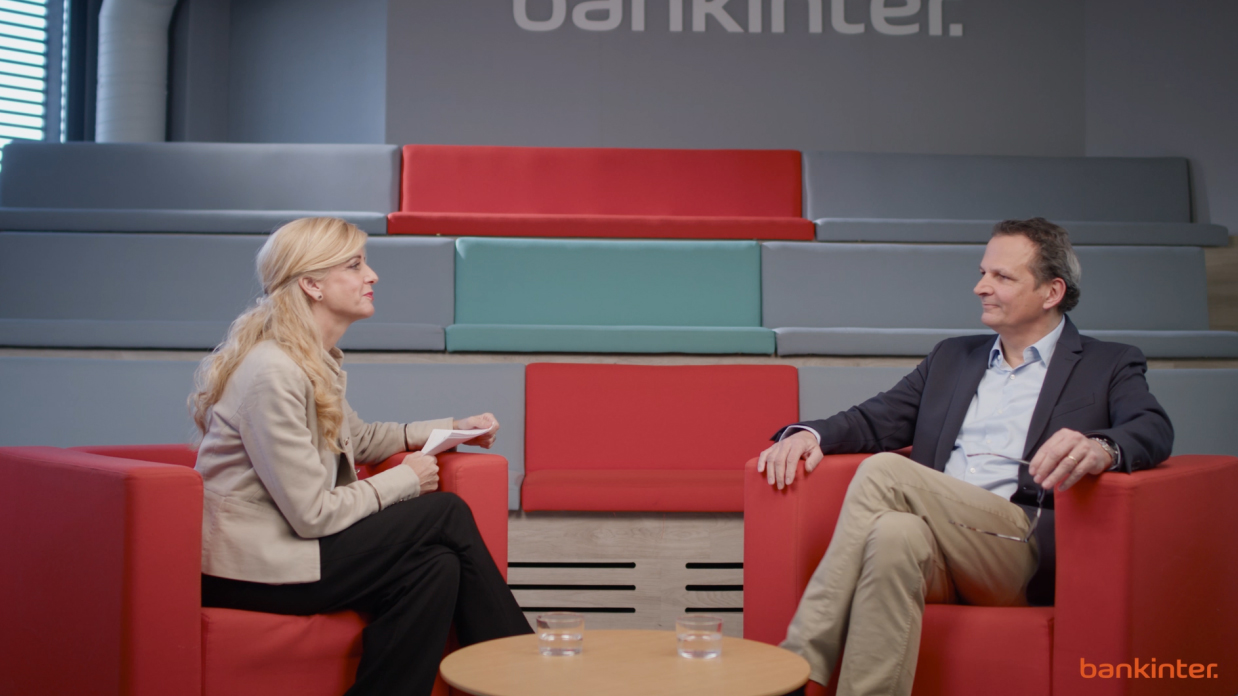We use first and third-party cookies for analytical and statistical purposes and to show you personalised advertisements based on a profile compiled from your browsing habits (e.g. pages visited). For more information, click on our Cookie Policy. You can accept all cookies by pressing 'Accept', you can reject all cookies by pressing 'Reject', or you can customize your choice by pressing 'Manage'.

Chip PERTE: The distribution of 12 billion euros will start in 2024.
The major nationwide project through which Spain wants to gain access to the global semiconductor manufacturers club.The race continues in 2024 with large corporations from Taiwan, South Korea and United States running alongside the Spanish microelectronics industry.
Last year saw the launch of preliminary calls focused on R&D and the training of professionals. Now it's time to reap the first fruits and create collaboration networks between industry, research centres and universities. The Chip PERTE is the theme of this conversation between Emma Montserrat, head of European Funds and deputy assistant managing director at Bankinter, and Xavier Gómez, head of Digital Transformation at FI Group.

Emma Montserrat: Xavier, this PERTE is going to mobilise a large part of the Spanish technology industry, as well as research centres. What point have we reached and what calls will be launched in 2024? Because this is a long-awaited PERTE.
Xavier Gómez: this PERTE was announced in mid-2022 and is articulated through four main axes and 11 actions. The first axis is aimed at boosting R&D capabilities, the second at design strategy, the third—with a larger allocation, more than 9 billion euros—at the creation of semiconductor factories, and the last at strengthening ICT manufacturing.
A call was expected in the second half of 2022 and the first half of 2023 but it wasn't launched. A series of calls were finally announced in 2023 aimed at R&D, universities and the training of specialised personnel. We hope 2024 will be an important year, as you mentioned, with publications that really start mobilising the resources of this PERTE. We are waiting and monitoring the situation.
Emma Montserrat: last year, as you say, the first lines of action were focused on training and R&D&i. Who has benefited from these calls and, above all, will they help to alleviate this country's lack of professionals in the AI and microelectronics fields?
Xavier Gómez: the Chip PERTE Missions call was the most important one in 2023, with an allocation of 60 billion euros and focused on the design of high-performance microprocessors and alternative architectures, as well as the development of a photonics ecosystem. Another call was the Chip Chairs, targeted at university research on semiconductors and the training of research personnel. That call will lead to the creation of a large university research and training network. In fact, there are already 17 Chip Chairs at Spanish universities. It's gratifying to see different universities starting to mobilise and engage more decisively with the objective of online collaboration.
As for the lack of specialised personnel that you mentioned, this is a problem not only in Spain but in Europe and worldwide, so the call for Chip Chairs will help to minimise this factor that is limiting the growth of the industry. It makes sense to address this as soon as possible because of the time it takes to train personnel. The Chip PERTE has hit the nail on the head by prioritising this call in order to integrate specialised personnel into the sector as soon as possible.
Emma Montserrat: the Chip PERTE commissioner has achieved a lot of visibility. He is the person who is working to attract major international investments to Spain. A specific office has also been created for this PERTE. How can Spanish corporates join the consortia? Is it a good place to go for advice?
Xavier Gómez: the Special Commissioner is a unit of the Digital Transformation Ministry with responsibility for coordinating the entire deployment of the different PERTE actions and strengthening Spain's position in this industry. Part of its mission is to maintain a fluid and constant dialogue with the industry both Spanish and abroad. This is the place to go for advice. Another of its aims is to attract the large facilities that require specialised suppliers, and that's where Spanish corporates come in. The other axes of the PERTE—R&D and design—will also present many opportunities for the sector.
The fact that someone like Jaime Martorell, with vast international experience, is the commissioner of the Chip PERTE is proving essential for Spain to become an attractive country for these large semiconductor manufacturers located in Taiwan, South Korea and the United States.
Emma Montserrat: the PERTE will run until 2027. The investments envisaged take time and are very complex. Do projects have to be launched this year, in 2024? How much time do corporates really have to prepare their applications?
Xavier Gómez: the Chip PERTE involves a series of actions spread over several years, so there's no need for all projects to be launched in 2024, far from it. Corporates can monitor the different actions that are going to be published and apply for the one that is the best match for them.
Our advice is to never chase the funds for their own sake. The aim of the funds is to reinforce specific projects that corporates have already decided they want to carry out. The funds can also be used to enable projects that corporates would like to develop if they had financial reinforcement, such as PERTE aid.
There is another key aspect that we never tire of driving home, which concerns preparing the application with the best guarantees and greatest chance of success: anticipation. By this, I mean that it's best to get started preparing and defining the project in advance, rather than sitting back and waiting for the aid. This is why the collaboration between corporates and the consulting work we carry out at FI Group, for example, is so necessary.
Corporates need to have the financial support that enables them to launch these projects until they receive the aid at a later date, whether in the form of loans or subsidies, because the process usually takes time. And that's where an entity like Bankinter, for example, hits the nail on the head with its specific products for Next Generation funds.
Emma Montserrat: for years there has been talk of promoting a kind of Silicon Valley in Spain. Some regions and cities have tried it, and some of them have ended up becoming genuine innovation hubs. But the calls for this PERTE are not managed by the autonomous communities. Would you say this is more of a nationwide project aimed at encouraging the entire sector to network?
Xavier Gómez: the semiconductor business is exceptionally global. The manufacturing process includes a series of stages where each country has a specific level, which may be more or less intensive, and there are even some countries that are not involved in any of these stages. For example, the US is particularly strong in the design stage, whereas Spain is a major player in the realisation of the design. The next stage is manufacturing: commodities and sophisticated machinery. Europe is the leader here through ASML, a Dutch corporate that is the only one in the world capable of manufacturing these machines with a high scale of integration. Next comes the manufacturing process, which requires sophisticated plants and vast amounts of capital. And the last stage is the quality check of the manufactured product and its packaging.
Asian countries dominate this manufacturing phase, which explains Europe's enormous dependency. That is what prompted Europe to take matters into its own hands and approve the Chips Act, designed to give us sovereignty and, as far as possible, eliminate our dependency on Asian countries. It came in the wake of the period of suffering that Europe endured as a result of not being able to access semiconductors from Asian countries. The aim is for Europe to assume 10% of global manufacturing by 2030. This is an enormous challenge because it means multiplying current production capacity by four.
The microelectronics ecosystem in Spain is extremely modest, made up of only about 200 corporates and research centres, and while it is true that the Axis 3 actions are focused on large factories, all the other Chip PERTE actions—research, design and reinforcement—will present some exceptional opportunities for Spanish corporates in the sector.
Without doubt, this is a nationwide project that aims to strengthen existing entities, create new ones and foster collaboration between them and with the government and public-sector research centres.


